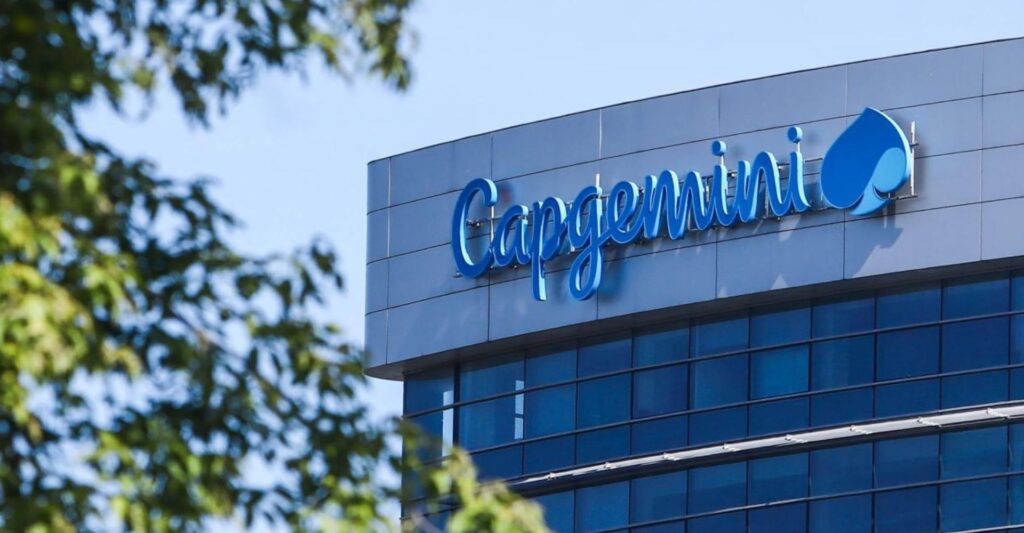Majority of Business Leaders Plan to Increase Sustainability Investments in 2024 – Capgemini Survey Finds

|
Listen to this story:
|
83% plan to increase investments in digital tools and technology, in particular AI as a driver of innovation and revenue growth, in the next 12-18 months. 52% intend to do the same for sustainability
Business leaders are starting 2024 with an increased level of optimism about their organization’s future growth compared to 12 months ago, according to a report released today. The Capgemini Research Institute’s Embracing a brighter future: Investment Priorities for 2024 report, explores the investment plans of 2,000 business leaders globally for the next 12-18 months. Customer experience, innovation, talent and skills, sustainability, and supply chains are strategic business areas set to benefit from increased investment.
According to the report, 56% of business leaders retain confidence in their organization’s future growth despite current macroeconomic headwinds, up from 42% 12 months ago. However, less than a third of them are optimistic about the global operating environment.
“Our annual report on the sentiment and investment intentions of global business leaders provides cause for optimism at the start of 2024,” said Aiman Ezzat, Chief Executive Officer at Capgemini. “Business leaders are beginning the year with an increased sense of confidence compared to 12 months ago, with technology and AI set to drive the next phase of the transition towards a more digital and sustainable global economy. It is good news that business leaders are increasing investments in a wide array of critical business areas from customer experience and innovation to talent and supply chains, and perhaps even more importantly sustainability. We have only scratched the surface of what digital tools and technologies, in particular AI, can achieve to reach these business objectives.”
Digital tools & technologies the key focus of investment, starting with AI
- AI as a driver of innovation – as business leaders increasingly realize the power of AI and generative AI to drive innovation and unlock revenue growth, 88% plan to focus on that technology.
- AI to play a bigger role in critical decision-making – business leaders expect that critical decision-making will be assisted by AI in five years from now. The life sciences industry appears to be leading the way, with nearly half of critical decision-making expected to be supported by AI in 5 years. However, a majority of business leaders across sectors also emphasize that human judgment is more critical than ever in an AI-driven world.
- Cybersecurity remains critical – 61% of business leaders now consider cybersecurity threats a leading risk to business growth – up considerably from 39% in 2023.
As the business case for sustainability becomes clear, most organizations now plan to increase investment
- Climate change as an existential threat – nearly half of global business leaders expect climate change to be the biggest driver of operational disruption over the next decade. With this in mind business leaders say that a lack of sustainable practices and processes will pose a long-term existential risk for their organizations.
- Incentives accelerate investment – 57% of business leaders said that they intend to increase their investment in clean tech in the US over the next 2-3 years due toInflation Reduction Act (IRA). The same proportion plan to increase their investment in EU clean tech as a direct result of the Green Deal Industrial Plan.
Questioning the concept of macroeconomic growth within planetary boundaries
Whilst business leaders are optimistic as to their organization’s future growth prospects, this comes with an increasing realization of the challenges brought about by environmental constraints. Two-thirds of business leaders say that the relentless pursuit of growth is incompatible with addressing the climate and ecological crisis. On a more macroeconomic level, 38% of them acknowledge that we are likely to enter an era where they will be no growth due to the need for humanity to stay within planetary boundaries.
Rise in nearshoring and ‘friend-shoring’ as supply chains remain a key vulnerability
The impact of Covid-19 and the subsequent economic lockdowns raised awareness of the vulnerability of the global supply chains that international business has long relied upon. In the last year, business leaders have looked to rehaul and redesign the complexion of their global supply chains, aimed at minimizing the risk of major disruption. The learnings taken from Covid lockdowns have driven an increase in nearshoring and friend-shoring solutions for procurement, reducing exposure to macro-economic and logistical turbulence. Just under half (45%) of business leaders say that a significant proportion of their procurement will be friend-shored in the future, and 49% state that they are investing in other emerging economies to reduce reliance on China.
Related Article: GRI Academy Launches Course to Master ESRS Reporting for Sustainability Practitioners
Talent and workplaces remain a key priority for business leaders
Scarcity of talent with the right skills ranks among the top business risks for nearly six in ten organizations (up from a third last year). As organizations plan and implement their “return-to-office” policies, a quarter also plan to increase investments in office space, up from only 4% last year. However, organizations also believe that flexible and hybrid work engagements are here to stay.










